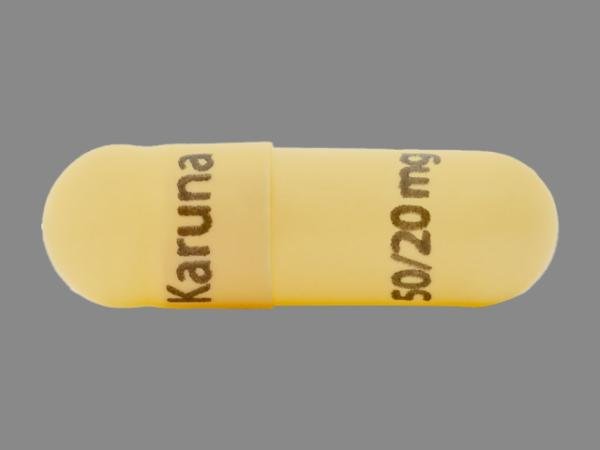Trospium/xanomeline and Alcohol/Food Interactions
There are 2 alcohol/food/lifestyle interactions with trospium / xanomeline.
Alcohol (Ethanol) Trospium
Moderate Drug Interaction
Ask your doctor before using trospium together with ethanol (alcohol). Use alcohol cautiously. Alcohol may increase drowsiness and dizziness while you are taking trospium. You should be warned not to exceed recommended dosages and to avoid activities requiring mental alertness. If your doctor prescribes these medications together, you may need a dose adjustment to safely take this combination. It is important to tell your doctor about all other medications you use, including vitamins and herbs. Do not stop using any medications without first talking to your doctor.
Trospium Food/Lifestyle
Moderate Food Interaction
Consumer information for this interaction is not currently available.
ADJUST DOSING INTERVAL: Food may reduce the oral absorption and bioavailability of trospium chloride. According to the product labeling, administration of trospium chloride with a high fat meal reduced the peak plasma concentration (Cmax) and area under the concentration-time curve (AUC) by 70% to 80% compared to administration while fasting.
MANAGEMENT: To ensure maximal oral absorption, trospium chloride should be administered at least 1 hour before meals or on an empty stomach. If trospium chloride is administered as a combination with xanomeline, the manufacturer recommends administering the capsules at least 1 hour before a meal or at least 2 hours after a meal. Capsules should be taken whole.
Switch to professional interaction data
Trospium/xanomeline drug interactions
There are 388 drug interactions with trospium / xanomeline.
Trospium/xanomeline disease interactions
There are 7 disease interactions with trospium / xanomeline which include:
- gastrointestinal retention
- narrow angle glaucoma
- urinary retention
- hepatic impairment
- alcoholism
- hepatic impairment
- renal impairment
More about trospium / xanomeline
- trospium/xanomeline consumer information
- Check interactions
- Compare alternatives
- Reviews (9)
- Side effects
- Dosage information
- During pregnancy
- Drug class: psychotherapeutic combinations
- En español
Related treatment guides
Drug Interaction Classification
| Highly clinically significant. Avoid combinations; the risk of the interaction outweighs the benefit. | |
| Moderately clinically significant. Usually avoid combinations; use it only under special circumstances. | |
| Minimally clinically significant. Minimize risk; assess risk and consider an alternative drug, take steps to circumvent the interaction risk and/or institute a monitoring plan. | |
| No interaction information available. |
See also:
Further information
Always consult your healthcare provider to ensure the information displayed on this page applies to your personal circumstances.


